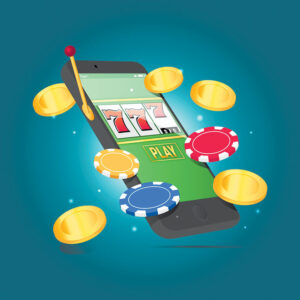Online vs electronic: Understanding the differences in today’s gaming landscape

With the growing number of personalities and the myriad of clips that trend on social media, it is safe to say that gaming of any form has gone mainstream. Easily accessible with the use of handheld consoles or smartphones, the hobby is highly entertaining, somewhat affordable, and is a great way to pass the time on a slow day.
Currently, two main genres of gaming dominate the scene with most, if not all, users playing one of the two: online and electronic gaming. While similar in some aspects, gaming online and electronically do have some differences that make them distinct from one another.
Online games, to put it simply, are titles that require a connection to the internet to be played. Being connected to a network allows these games to autosave their user’s progress, link players from all over the world into one server, and make human interactions within games possible.
Examples of online gaming include massively multiplayer online role-playing games (MMORPGs), first-person shooters (FPS) with online multiplayer modes, and battle royale games like Fortnite and PlayerUnknown’s Battlegrounds (PUBG). The titles in this genre of gaming often require gadgets that can handle a good amount of memory, have decent processing speed to keep up with animations, and maintain a stable internet connection to ensure smooth gameplay, prevent lag, and support real-time interactions with other players.
Another sector of online gaming that has recently exploded in popularity is online betting and in-game purchasing. Since digital wallets and other finance apps are now connected online, money can be at stake or invested while playing, taking the gaming experience to another level. This comes in games where there are online purchasing features, paid downloadable content, and resources that need to be recharged in games.
Taking Filipinos’ favorite casino and carnival games to the internet, online gambling or betting refers to playing games of chance or skill for money while connected to a network. Virtual slot machines, card games, and bingo are just some of the most popular options in the Philippines. Recently, the beloved Filipino “perya” game, Pinoy Drop Ball, made its way online through BingoPlus. In Drop Ball, players bet on cards and win double their wager if the ball lands on their chosen spot after bouncing out of a funnel. Similar perya games also in the platform include the “Color Game” where players place bets on colored squares, the host drops the dice, and winnings are determined by the colors facing up when the dice stop.
Meanwhile, electronic games refer to a broader spectrum of titles and can be classified as games that can be played using electronic devices that may or may not require a connection to the internet. Older consoles like Sony’s first and second Play Station, the Nintendo Game Boy, and even ancient arcade games all contain titles that are apt for the genre.
rawpixel.com | Freepik
The games developed electronically are, more often than not, meant for the enjoyment of one person. They are usually in the genres of puzzle-solving, simulation, adventure, and even role-playing games. Famous electronic games include the likes of Super Mario Bros., single-player PC games like The Witcher 3, and mobile games like Angry Birds.
Monetization and cost of electronic games are often cheaper than online games too. Without the convenience of the internet, electronic titles follow a more conventional model where players purchase a game once and enjoy it indefinitely, though some may include downloadable content (DLC) for additional revenue.
Other definitions of electronic gaming do exist as the term encompasses a wide range of games beyond just those played online. According to the United Kingdom’s Gambling Commission, electronic gaming refers to facilities for non-remote casino gambling that enable multiple players to participate in the same casino game (typically roulette) via electronic means.
Similarly, the Philippine Amusement and Gaming Corp. (PAGCOR) defines the term as games of chance available through electronic gaming platforms offered both at physical locations operated by PAGCOR-licensed gaming venues and through their respective online gaming platforms.
Thus, all online games can be considered electronic games while not all electronic titles have online features. The distinct features between the two genres lie in connectivity requirements, multiplayer versus single-player experiences, game type and scope, platforms and accessibility, social interaction, and monetization models. Despite these differences, the main purpose of online and electronic gaming remains the same: to give their players a space to relax and have fun. — Jomarc Angelo M. Corpuz




